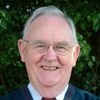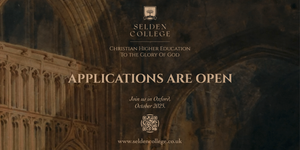A major U-turn. That is the only way you can describe it. Such U-turns occur often in the world of politics, business, sport and other areas of society. But recently we have witnessed a major U-turn in the cult world. I am referring to the Worldwide Church of God (WCG) which was founded by Herbert Armstrong (1892-1986). The U-turn has been recognized officially, too, by many Evangelicals in the United States of America. For example, in the spring of 1997 the National Association of Evangelicals (NAE) there issued an important press release concerning the WCG. The NAE leaders ‘overwhelmingly’ agreed to accept the WCG into membership, but only after detailed examination of doctrinal changes which had taken place within the group.
Dramatic changes
NAE president Don Argue was in no doubt on the matter: ‘I respect Joseph Tkach and the leadership of the Worldwide Church of God,’ he said, ‘who did not rest in the refuge of their historically held doctrines, but sought the truth through careful study of the Scriptures, even at significant cost to the denomination.’ There was a cost, too. WCG once had as many as 90,000 members in the USA alone but now the figure has dropped to just under 50,000.Worldwide membership of the WCG is currently about 74,000 and there are 802 ‘churches’. Over half of these ‘churches’ are in the United States, as are 678 ordained WCG ministers out of a world total of 1,046. Despite the membership loss, the doctrinal changes in WCG are viewed by the NAE president as an answer to prayer. ‘For years people have been praying for their friends and relatives who have been part of the Worldwide Church of God, asking that they would be able to see the truth of God’s Word.’ He added: ‘We see the dramatic changes that have occurred among our friends as God’s continuing efforts to bring renewal and revival for His glory.’
The changes were certainly dramatic and unexpected. So much so, that John MacArthur was caught out. His 12 January 1998 radio broadcast, Grace to You, included a dated negative reference to WCG. When challenged, the programme director explained that the broadcast had been recorded eight years previously and they had failed to check and update its content. The director agreed to edit the programme accordingly. One further example of the new acceptance of WCG by orthodox Christians is included here in order to underline the way in which the group has changed.
Albert Mohler, president of the Southern Baptist Theological Seminary in Louisville, Kentucky, reviewed in Preaching Magazine a book written by WCG leader Joseph Tkach, entitled Transformed by Truth. Mohler is full of praise for the book. ‘One of the most fascinating stories in modern American religious life’, he writes, ‘is the transformation of the group established by Herbert Armstrong, the Worldwide Church of God, into an orthodox Christian tradition.’ Mohler explains how Tkach ‘offers his testimony of his group’s rejection of the teachings of Herbert Armstrong and its progressive embrace of historic Christianity’. He adds: ‘As this group embraces orthodox Christianity, we can see the almost unprecedented development of a religious cult into a distinctive Christian tradition [although] the group still has serious issues to resolve.’
The story behind the story
We now need to retrace our steps and see how and when these dramatic changes occurred. The story begins, of course, with Herbert W. Armstrong himself. In the late 1920s, and through the agency of his wife, Armstrong came under the influence of Seventh-Day Adventist teaching, particularly that Saturday is ‘God’s Sabbath’. In 1933 he was ordained as a minister in the sabbatarian movement, and a year later launched his influential Radio Church of God. This was followed by his Plain Truth magazine and, in 1947, by his Ambassador College.
He renamed his organization The Worldwide Church of God in 1968, but only six years later a major division occurred when forty ministers and thousands of members left WCG on doctrinal and moral grounds. Even his own son, Garner Ted Armstrong, formed his own breakaway organisation under the name The Church of God, International. In the 1970s, Herbert Armstrong announced that he was God’s apostle for the last days, but following financial problems and lengthy court battles, he died in 1986 at the age of 94.
His moral life left a lot to be desired. A manic depressive, who committed incest with his youngest daughter, he was also an alcoholic. Herbert Armstrong was motivated by fame, fortune and sex. His divorce from his wife Ramona cost an estimated $5 million. The Lord Jesus warned, ‘By their fruits you shall know them’ (Matthew 7:20). Those ministers who protested against Armstrong’s moral failures were quickly excommunicated, while others left the movement in disgust.
Armstrongism
The doctrines promulgated by Armstrong were unorthodox and bizarre. There is convincing evidence that he also plagiarized extensively. What did he teach?
The doctrine of the Holy Trinity, he insisted, was false because God was a ‘family,’ a ‘group in which there are two separate and individual Persons’. He taught that Jesus Christ only became the Son of God when born of the virgin Mary, and that Jesus could sin like anyone else. According to Armstrong, salvation is by grace, but grace must be accompanied by water-baptism and the keeping of commands such as the seventh-day Sabbath and tithing. Racism was implicit in his teaching, and an irresponsible interpretation of Bible prophecy led him to embrace British-Israelism. This discredited theory claimed that the USA, Russia, UK, Germany, France and
other Western European nations were the descendants of the lost ten tribes of Israel! Armstrong even predicted that the world would end in 1975. Like other exclusive cults, the WCG taught that it was the only true church.
The present WCG leader, Joe Tkach Jr. states that over 100 groups ‘split off’ from the WCG during and since Herbert Armstrong’s ministry. Such breakaway groups include the United Church of God, the Philadelphia Church of God and the Global Church of God. It was after being disciplined for immoral behaviour that Garner Ted Armstrong founded the Church of God International based on ‘a liberal version of Armstrongism’.
Process of change
How did WCG change doctrinally? One man used significantly in this process of change was Earl Williams, who in the 1990s began to preach Christ fearlessly and to emphasize salvation by grace without human obedience to the law. His message was fruitful, and the leadership began to approve what Williams preached. Already in the early 1990s it emerged that the WCG leadership had been looking to revise radically its doctrine of God. Discussions were held with faculty members of Trinity Evangelical Divinity School in 1991, and a year later WCG leaders were able to affirm the deity and personality of the Holy Spirit. This was a major shift from Armstrong’s teaching, and in 1993 the movement made a clear orthodox statement concerning the Trinity: ‘the Father, the Son and the Holy Spirit are co-equal, co-eternal…’
It was a major U-turn indeed, especially considering that Joseph Tkach Jr originally upheld Armstrong’s teachings when he assumed WCG leadership in 1986. His famous 1994 Christmas Eve sermon was a further step in securing doctrinal reform: ‘We cannot assume that any part of the Old Covenant is binding on us today simply on the basis of it being the old package of laws,’ he insisted. He also denied in this sermon that only Sabbath-keepers were true Christians. From 1995, Tkach’s son has led the WCG and consolidated these doctrinal changes. Soon after assuming the leadership, he apologized to all who had been misled by Armstrongism: ‘We earnestly desire their understanding and forgiveness,’ he said.
Caution needed
Caution is still necessary in evaluating the reformation within WCG, but we can rejoice in their new Trinitarian emphasis on divine grace and the centrality of the Saviour’s unique sacrifice for sinners. After all, Christ, and Christ alone, is our only hope. That is the testimony of Conrad Comoau, a former WCG member and a pilot for the Armstrongs. After years in the movement he acknowledges: ‘We cannot possibly save ourselves… It is only by the grace of God… So we must turn directly to God and not to any man.’ That is the true gospel.





